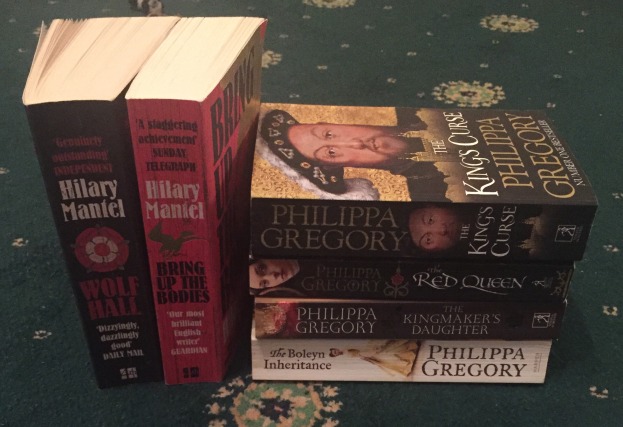English Literature has always been my favourite subject, by a country mile, but if I had to pick a second option then it definitely would have been history. I have only, relatively recently, discovered some of the fantastic novels which depict some of the most important periods in English history.
As a trainee editor it is second nature to me to consider how a potential book will fit into a market by appealing to particular readers. The market for historical fiction is huge, even in terms of television; The Borgias, Versailles, Vikings and, my personal favourite, The Tudors. These are all hugely successful shows which have all been released in the last ten years, alongside many others too numerous to begin listing. Many people have an interest in the past, but do not necessarily (like myself) enjoy wading through everything that has been written by David Starkey in order to learn about it.
I think historical fiction is a good mixture; I don’t feel quite so lazy when reading a novel about the past as I do when sat binge watching every episode of The Tudors, repeatedly. Philippa Gregory is, of course, the most famous author associates with the historical fiction genre, and for very good reasons. Her series on The Cousin’s War was my personal favourite. Most people know about the Tudor dynasty, but not as many know about the events which took place beforehand. The best thing about Gregory, in my opinion, is that she does not overstep the historical facts in order to make a good story. Like any historian, she takes her sources and takes a standpoint.
Her depiction of Richard III is grounded in fact- he was not the only person at the time who would have benefited from the deaths of the surviving sons of Edward IV. Gregory does not depict him as a monster; Richard was renowned for his fierce loyalty to his brother and bravery on the battlefield, but all too often this is disregarded. In fact a lot of what history has to go on regarding Richard is Tudor propaganda, so Gregory very much took a stand against the norm in going with a positive and more realistic depiction. The story which sheds a lot of light on Richard in the series is The Kingmaker’s Daughter; this is told from the perspective of Richard’s essentially forgotten Queen, Anne Neville.
History is not often considered from the perspective of women, as it was generally the men who held all the power and influence. There are obvious exceptions- Elizabeth I, Queen Victoria and Christina of Sweden- but viewing history through the eyes of the lesser known women is even more fascinating. Gregory gives many long-forgotten women a voice, and truly brings their stories to life.
Another author, who I think has made astounding contributions to historical fiction, is Hilary Mantel. My favourite works of hers are Wolf Hall and Bring up the Bodies; like Gregory, she manages to reinvent one of the most infamous characters in history. Thomas Cromwell was a man of supreme influence, largely known for his role in the English Reformation, and history has certainly not been kind to him. He is not remembered for the loyalty he bore Cardinal Wolsey (until the very end, even when he held favour with no one else), his charitable work or for being one of the few men at the time who were competent in their positions.
Mantel’s books are by no means easy reading; unlike Gregory you cannot simply pick it up and start reading, it is more immersive than it is fast paced, but it is well worth the effort. Mantel brings a new perspective to a well known story; more so than any other historical fiction writer she makes you think that there’s still a chance the outcome will be different, because you are so involved in their present, you can almost forget your knowledge of the facts.
If anyone can recommend other historial fiction writers I would be very interested to know 🙂 I am trying to expand my range a little! 
